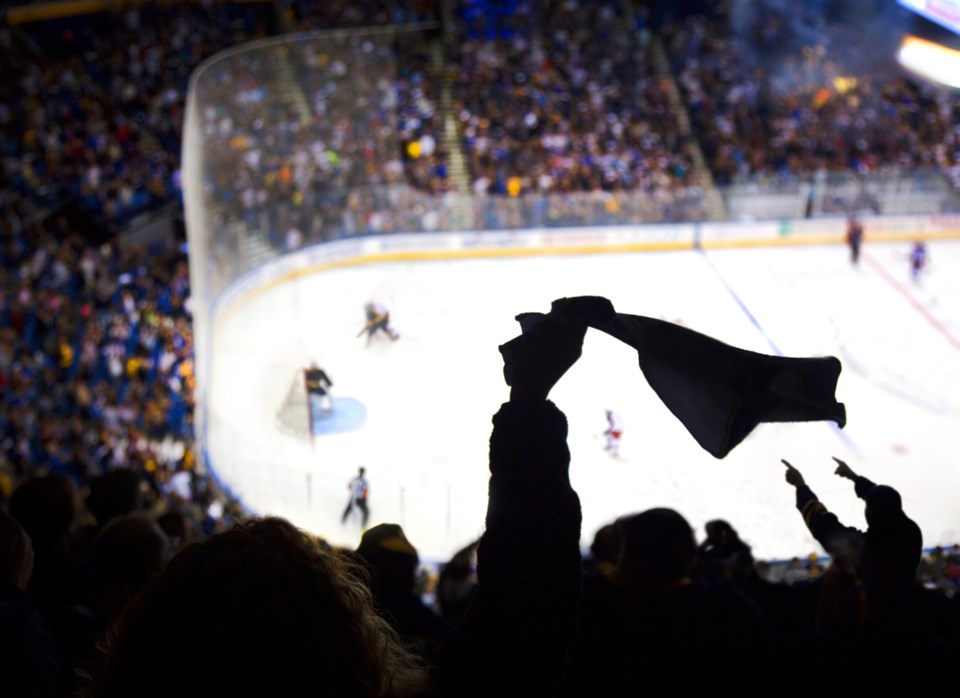The National Hockey League is about to have a major problem. And while it’s happening north of the border, it should be an early warning to NHL franchises in the United States of things that might come in the upcoming season which is, again, sure to be affected by the ongoing pandemic.
The Canadian province of Alberta has two major cities: Calgary and Edmonton. Each of these cities in this hockey-crazed province and nation has an NHL team. And each team has announced that they are opening their arena to full capacity (18,300 and 18,500 respectively).
Yet the province of Alberta is experiencing by far Canada’s most poignant fourth wave of coronavirus cases.
Ilan Schwartz, MD, Ph.D., an Edmonton doctor, :
“We are literally 10 patients away from having to start choosing who gets treatment and who does not.”
Hyperbole aside, how bad is it really in Alberta?
Even worse than one could imagine. By the time the NHL season begins in 19 days, Edmonton and Calgary hospitals may cancel all elective procedures, treat COVID-19 patients in hallways, and continue to . If this wasn’t enough, , leading Dr. Schwartz to again tweet:
“Dear @EdmontonOilers & @NHLFlames
“Since you seem not to have any qualms with crowded spaces, I'm wondering if you wouldn't mind taking along some extra passengers (just some ICU patients, EMTs, RNs, RTs and MDs) in the team jet when you travel to Toronto, Ottawa, and Montreal?”
Alberta currently has close to 21,000 active cases of the virus, more than twice any other Canadian province. Quebec and British Columbia have already told Alberta that they can’t accept any patients into their ICUs.
None of this is happening in a vacuum, as it all comes on the heels of Tuesday’s Canadian federal election, in which the Liberal party won again with a minority government. The party in power in Alberta is the United Conservative Party, a kissing cousin of the federal Conservative Party. The Alberta premier, Jason Kenney, is rumored to have an approval rating as low as seven per cent at the moment, plummeting from his per cent in June.
Is this a mess that might somehow have an easy fix?
No. . The NHL doesn’t have the same economics as the NFL or NBA. Especially in small markets such as Edmonton and Calgary, as well as many similar U.S. markets, ticket revenue is a critically important part of the teams’ operating budget and strategy. In this context, there is absolutely no way that this political pressure from the league and the teams themselves isn’t hitting these Alberta cities hard.
, a New Jersey lawyer and sports fanatic, puts this in the broader legal context:
“Whether it’s the home arena for the Flames or Oilers, or here for the Rangers, Islanders and Devils, team owners and the league can’t be tone-deaf to issues of public health and, potentially, of legal liability.”
In the NHL, as in every professional sports league, the league and teams need to mitigate risk for everyone involved in the equation of live sports, including team personnel, players, arena workers and, of course, the fans. Mitigation strategies are always dependent upon real-time data. In other words, it’s fine to say that we want full arenas, but legal responsibility could attach where leagues and teams simply disregard new information that could make, say, stuffing 18,500 Edmontonians into an ice rink, an unsafe plan.
Even where there is a liability waiver attached to attendance () that won’t protect a league or franchise from a potential claim of negligence or worse. If Alberta’s solution is their new printable proof-of-vaccination card, this could get ugly fast, as it is truly.
How this ends up playing out over the upcoming weeks remains to be seen, but with the Oilers and Flames meeting in Calgary this Sunday for the first preseason game, there is no time to waste to come up with an actual viable plan to keep fans safe.
Aron Solomon, JD, is the chief legal analyst for and the editor of .





